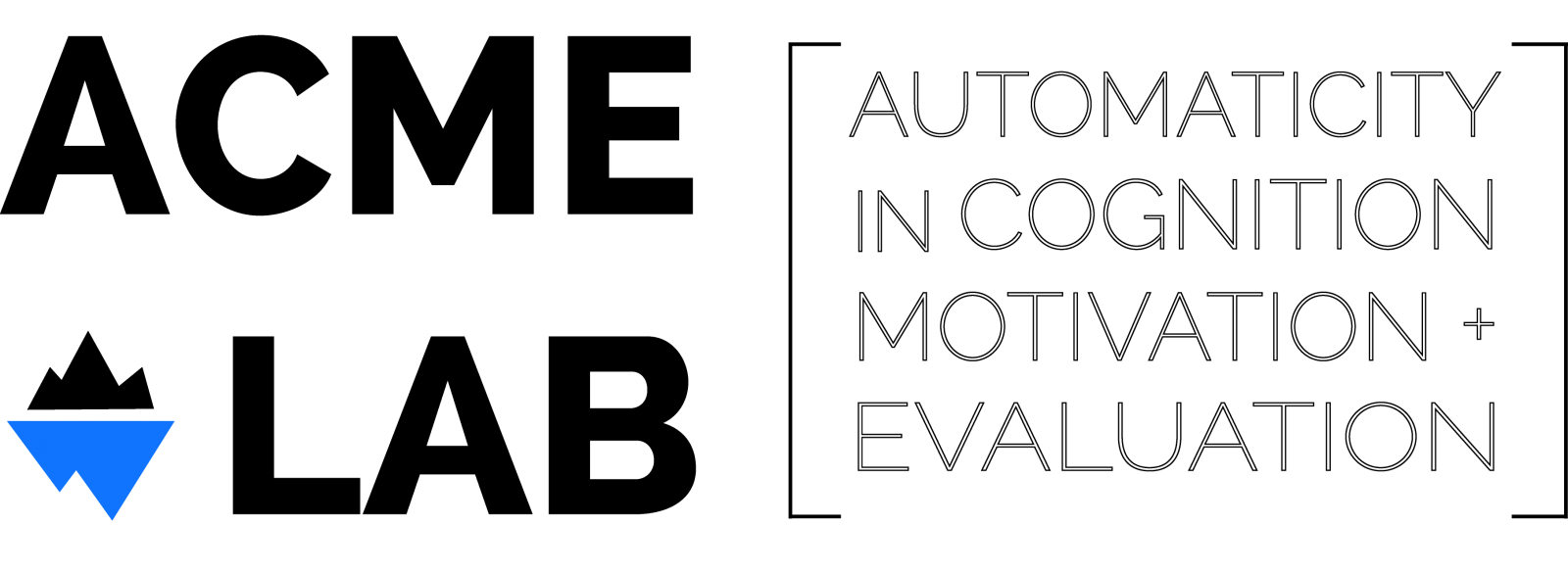 The Automaticity in Cognition, Motivation, and Evaluation (ACME) lab focuses on unconscious or automatic ways in which our current environmental surroundings cause us to think, feel, and behave in ways without our conscious intention or knowledge. Past research has shown that these automatic processes play a role in stereotyping and prejudice, social behaviors such as aggression and politeness, as well as our liking and disliking of people, places, and things.
The Automaticity in Cognition, Motivation, and Evaluation (ACME) lab focuses on unconscious or automatic ways in which our current environmental surroundings cause us to think, feel, and behave in ways without our conscious intention or knowledge. Past research has shown that these automatic processes play a role in stereotyping and prejudice, social behaviors such as aggression and politeness, as well as our liking and disliking of people, places, and things.
More recently, ACME Lab research has shown how social goals such as achievement and cooperation can become activated and then operate outside of awareness, guiding our behavior over extended time periods, without our intention or awareness of the goal we are pursuing. ACME research pays special attention to demonstrating how these effects are triggered by the commonly encountered features of real life, such as thinking about the important people in our lives, as well as common situational contexts and physical experiences.
*Disclaimer: Electronic versions of papers are provided under the Publications tab as a professional courtesy to ensure timely dissemination of academic work for individual, noncommercial purposes. Copyright (and all rights therein) resides with the respective copyright holders, as stated within each paper. These files may not be reposted without permission of the copyright holder. John A. Bargh asserts no COI on any of these publications. Funding comes from the university, unless otherwise noted.
